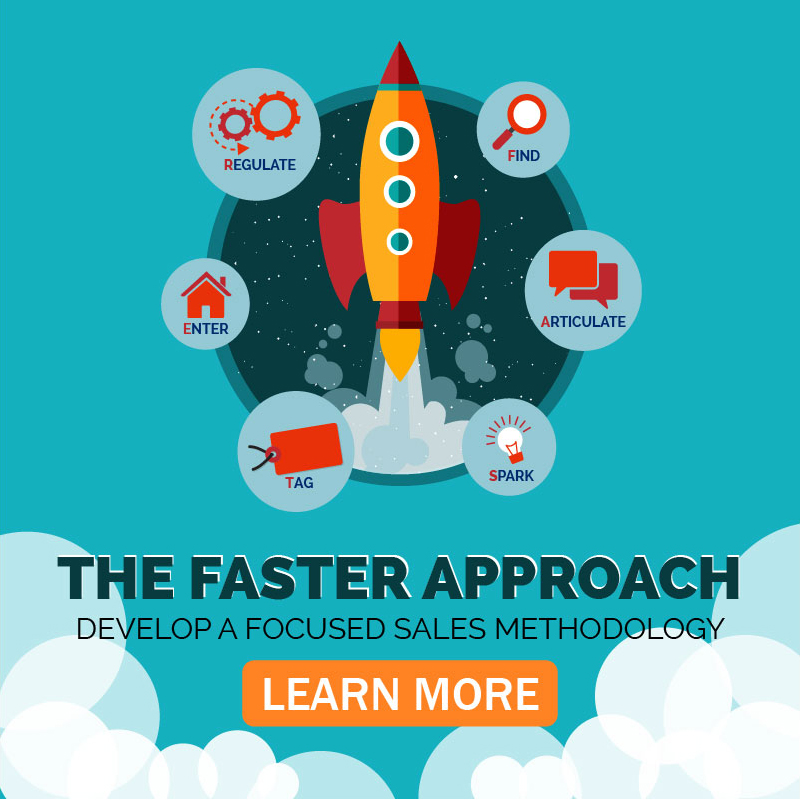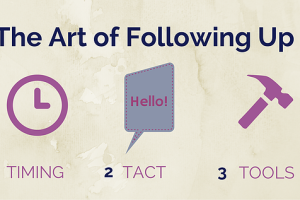We all know the type. You can sense who they are as soon as you walk into a room. They’re the “big picture” guys—people who intuitively appreciate the various moving parts in an organizational system and work toward mutually beneficial outcomes for all stakeholders involved in a business decision (including themselves).
And if you’re in sales, then you know that the big picture players are the ones who net the biggest accounts, generate the highest customer ratings, and score first-round picks at promotion time. Why? Because they have “business acumen.”
Business acumen can be defined as a keenness and quickness in understanding and dealing with a ‘business situation’ (risks and opportunities) in a manner that is likely to lead to a good outcome. It’s that extra little something top performers bring to the table—a special quality that enables them to see beyond their immediate job requirements and short-term performance goals in order to comprehend how things taking place elsewhere in the organization impact their success (and vice-versa).
In other words, people with business acumen know how to capitalize on any situation they’re presented because they know where their organizations are trying to go and what resources are available to help them get there. They’re team players who value their role within the big picture of the organization’s mission. And they know that helping others do their jobs helps them get theirs done more efficiently, too.
We may be tempted to think that business acumen is something only managers need to worry about cultivating, but that’s too short-sighted. A well-developed sense of the “big picture” benefits any worker, at any level of organizational responsibility. Salespeople with this quality benefit from:
- Better collaborative partnerships. People enjoy working with team players who appreciate one another and look for opportunities to make their jobs easier. Such individuals become go-to resources for collaborative problem-solving—a vital source of insight for those who are looking to better understand the inner workings of their organization. And favors go a long way. When you invest the time to learn about your partners’ needs (and how you can help), it’s so much easier to approach certain key influencers who can make something happen when you need their help.
- Stronger decision-making skills. People who understand how others’ work feeds into their own—and vice-versa—are better equipped to make sound judgments in complex prospect situations. Instead of having to leave potential customers hanging while they ask for answers from other departments, these individuals develop an intuitive capacity for finding answers themselves. They know what their organizations can and can’t realistically do, and they know what kinds of projects are most profitable for their company. They leverage this knowledge to strike mutually beneficial deals that are likely to lead to long-term customer satisfaction.
- Better customer awareness. Salespeople with keen insight into their own companies’ operations are, not surprisingly, better able to appreciate their customers’ operations. And that usually means they have a more solid grasp of their prospects’ pain points. Why? Because most business models have a lot in common. The problems your customers face are probably not all that dissimilar to problems your own team faces, and when you’re able to position your value proposition squarely within one of those pain points, you function more like a competent consultative problem-solver than a “greedy salesperson.” Customers tend to reward that kind of value by giving you their business.
That all sounds pretty good, right? So how do you “get” business acumen? Well, there’s not a magic formula, but here are some tips for getting started:
- Pay more attention to what’s happening in your organization. As with so many things in life, business acumen arises when we take a humbler, more observant posture in our interactions at work. Many salespeople feel like they need to be the first to speak in a meeting—to assert their customers’ needs or push for solutions to the specific problems they’re facing right now. But those with an eye to the big picture tend to be more reserved and deliberate. Sure, they voice their concerns, but first they like to sit back and listen to what others are saying, particularly when those people are charged with articulating their company’s mission and values. Sometimes the problems we’re facing in the moment stem directly from decisions that are being made elsewhere in the organization. Other times, they arise as a result of a “blind spot” in the customer experience that we can help bring to the attention of other stakeholders in that area of the company’s mission. The point is that people with business acumen take keen interest in what others in their organizations are doing—the problems they’re facing, the milestones they’re trying to achieve, and the metrics for success that upper management is paying attention to. They’re eager to understand how those things feed into (and are fed by) the sales process because they know that a positive customer experience depends on more than just their ability to make the sale. It depends on people at all levels of the organization doing their jobs well.
- Ask questions. Be curious! Don’t settle for, “What is expected of me?” Try to find out, “Why does this matter to my company?” Strive to fully understand where your organization makes its money—and where it stands to lose it. Look for opportunities to close the gap in your subject matter expertise in matters of production, logistics, and procurement. Be in the know when it comes to who’s who at your organization—who the top performers are, who calls the shots in various departments, and who has veto power others’ ideas. Knowledge is power.
- Connect with others. In line with the last point, people with business acumen use their knowledge to lead them into new relationships that can be leveraged to their advantage in business situations that may arise in the future. But we’re not talking about selfish networking here. We’re talking about taking a genuine interest in what other people have to say on topics that are important to them. Try taking your production foreman out for coffee sometime, just to find out more about the kinds of challenges that make his day difficult. Find out who in your organization has the longest tenure, and ask them to share their story. You’ll be amazed what connections like this can yield in terms of future opportunities.
- Work on your emotional intelligence. Intellectual intelligence only goes so far in business. Sure, you need to have a solid grasp on the facts and figures, particularly as they pertain to your product (and your competitors’). But what really moves mountains in business situations is the ability to recognize and respond accurately to others’ emotional needs. That includes the people at other levels in your organization. If you perceive that the emotional temperature level is rising somewhere, eventually it’ll blow up in your customer’s face—even if it’s not your fault. Be part of the solution now, even if it isn’t your job to be, and you’ll reap the rewards later.
- Never stop learning. There are endless trade publications, business journals, blogs and online forums where people trade information practically for free. When was the last time you attended a webinar or brushed up on a white paper about something in your product niche? People with business acumen want to be on the leading edge of innovation. They strive to be thought leaders, and that means they are continuously reading and continuously learning something new. And this isn’t limited just to business-specific knowledge. Big picture people read widely—in politics and philosophy, entertainment, etc. They know how the world works, and they spot industry trends more quickly as a result.
Unfortunately, business acumen isn’t something you can learn by following a five-point program. It’s more like a “sixth sense” that you develop over time, by tending to your job with curiosity and an open mind. But if you keep at it, one day you’ll wake up and realize you’ve become one of your company’s “big picture” players.









Speak Your Mind